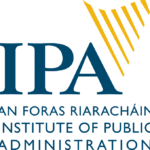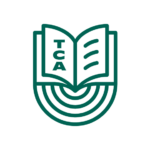It’s not easy marketing an SME, especially in an ever-globalising economy. It can be hard to know if your adverts are getting to the right customers, or if the content you’re creating for your site is hitting the right tone. We had the opportunity to sit down with digital marketing expert Mariana Romais, and get her advice ahead of her SEO training programme in Liberties College.
How did you get into this field? What campaigns, companies have you worked with?
I started working with SEO in 2013 when I was still in Brazil. I knew what SEO was (as I worked with digital projects before), but I was far from being an expert. The professionals at the time were so scarce that my employer paid me the first month of salary to do nothing but study SEO.
I’ve already worked with big companies – such as Salesforce and Samsung – and businesses of all kinds (fashion and electronic e-commerces, colleges, nursing homes, TV channels, solicitors etc.) What I learned is that every business can benefit from SEO, no matter what they specialise in. No matter how big or small a company is, you will always have competition online and people will continuously search for something you can help them with.
What does the term SEO mean?
SEO is “Search Engine Optimisation” – which basically means making changes to a website (content, design, usability, etc.) so it becomes more “attractive” to search engines, such as Google, Bing, or DuckDuckGo. The higher your site ranks, the more people will click on your site and not elsewhere.
SEO is important because every second, millions of users are looking for answers to their questions. If you have the right solution to their problem or a product they want to buy, SEO can put you way ahead of the competition.
What was the most unusual project you worked on?
I wouldn’t say this was unusual, but doing SEO for one of “Fortune‘s 100 Best Companies to Work For” was incredibly challenging. Even though they are a powerful company all over the world, with offline competitors just as big as them, the online scenario was completely different. They were being surpassed by a simple blog that was developing really good content on the topics they wanted to rank for. Our team then developed a strategy of how they could start ranking for these keywords/topics that were important to them and results started to bloom after a few months.
What are the most common mistakes people make when it comes to SEO?
A lot of people think too much on optimising for search engines, but they forget that their website is also and most importantly that is has to function for real people. When you try to “force” an SEO strategy too strongly, it will have a negative rather than a positive impact. Another mistake is to think that SEO will bring almost instant improvements to your site’s traffic – this could not be further from the truth. SEO takes time – even months – to start showing results.
Is it hard placing on changing platforms such as Google?
This is a curious thing, but many SEO professionals have a sort of “Love Hate” relationship with Google. The love is comprehensive – Google is still the most powerful search engine on the internet and SEOs are thankful for being able to work in the search industry. On the other hand, algorithm changes, tests and ads placements come and go very often and are sometimes maddening for the companies and professionals to keep up with.
How can remedying these help an SME?
When it comes to “over optimisation”, the trick is to find the right balance! Yes, optimise your site for the search engines – but think about the people using the search engines. There’s a lot of content and information on the internet. A LOT. The reality, however, is that a big part of this content is also very poor and unhelpful. How can your site stand out from the average players in your field? How can you present something great and unique? Good SEO also includes a good brand strategy, a marketing strategy and a business strategy.
When it comes to using software, what programmes would you recommend?
There are many tools available online to help business owners, but I’d recommend these two basic ones to start: get familiar with your site’s Google Analytics and Google Search Console accounts. You can get a lot of information there to understand your audience, what’s performing well, what you should invest more in etc.
You have a course kicking off in Liberties College starting 18th – what does this cover?
The course covers the basics of SEO, nothing too advanced or complicated. It’s a great way to get started in this field.
What is the profile of the average participant?
Any person that has a website or works with a website can learn and benefit from SEO training and can pick up some valuable tips with this course.
What the main things that anyone looking to optimise their web presence should do?
Know your audience, know your competitors and do things better! Also, if you have some spare time, take a few hours to study SEO and digital marketing – there are a lot of great resources online to help your business’s online presence.
Mariana Romais
Mariana has been leading SEO and Digital Projects for 10+ years. Experienced in one of the world’s biggest digital markets, she’ll know the best optimisation guidelines for any business – from SMBs to big players.















